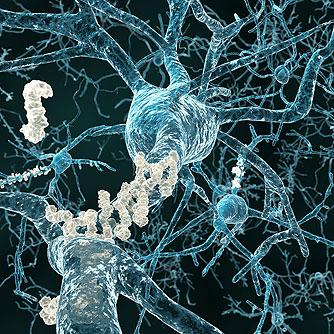Alzheimer’s brain tissue exhibits many fewer nerve cells and synapses than a healthy brain, due to the presence of plaques – abnormal clusters of protein fragments, build up between nerve cells; and tangles – twisted strands of proteins that comprise dead and dying nerve cells. In a small pilot study, Milan Fiala, from the University of California Los Angeles (UCLA; California, USA), and colleagues drew blood samples from both Alzheimer’s patients and healthy controls, then isolated macrophages – blood components that are responsible for disposing of amyloid-beta and other waste products in the brain and body. The team incubated the immune cells overnight with amyloid-beta. They added either an active form of vitamin D3 called 1alpha,25–dihydroxyvitamin D3 or an active form of the omega-3 fatty acid DHA called resolvin D1 to some of the cells to gauge the effect they had on inflammation and amyloid-beta absorption. The researchers observed that both 1alpha, 25-dihydroxyvitamin D3 and resolvin D1 improved the ability of the Alzheimer’s disease patients’ macrophages to gobble-up amyloid-beta, and they inhibited the cell death that is induced by amyloid-beta. Researchers observed that each nutrition molecule utilized different receptors and common signaling pathways to do this. The lead researcher is hopeful that: “Our new study sheds further light on a possible role for nutritional substances such as vitamin D3 and omega-3 in boosting immunity to help fight Alzheimer’s.”
Natural Approaches May Help Clear Brain Plaques
Mizwicki MT, Menegaz D, Zhang J, Barrientos-Durán A, Tse S, Cashman JR, Griffin PR, Fiala M. “Genomic and nongenomic signaling induced by 1α,25(OH)2-vitamin D3 promotes the recovery of amyloid-[beta] phagocytosis by Alzheimer's disease macrophages.” J Alzheimers Dis. 2012;29(1):51-62.
RELATED ARTICLES




